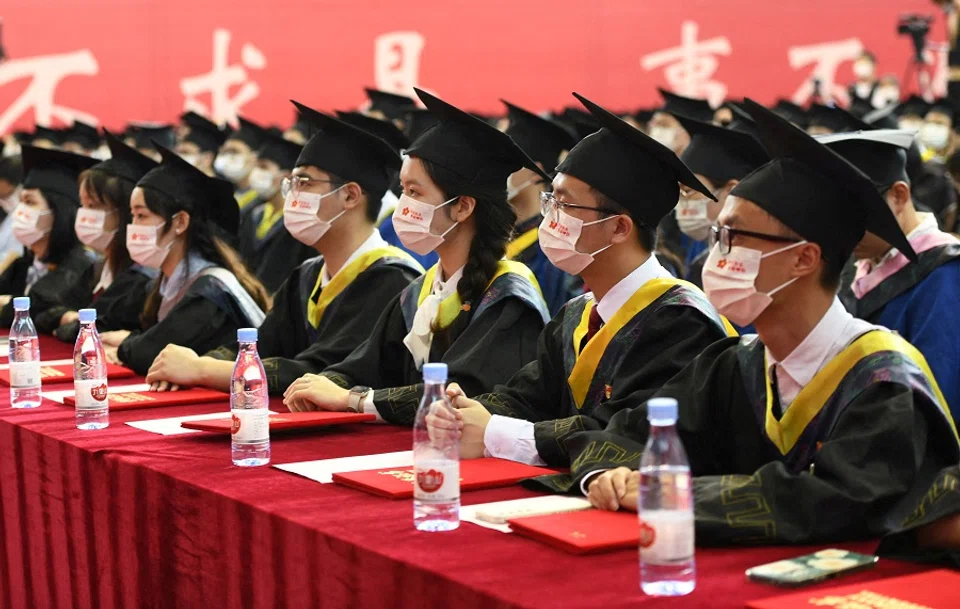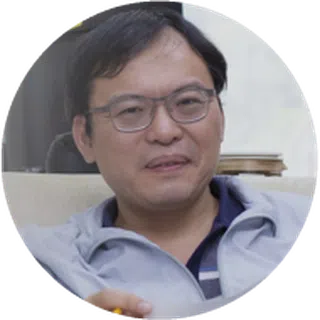[Future of China] Chinese youth under Xi Jinping's Red Flag: Political participation as a route to riches
Under President Xi Jinping, the CCP has encouraged greater youth participation in politics, but on their terms, such as bringing in new blood through the "selected graduate" (选调生) system. However, both the youths and the Communist Party know that this is an expedient relationship that may not be for the long term. This is the fourth in a five-part series of articles on the future of China.

The relationship between China's youth and the Chinese Communist Party (CCP) today warrants some discussion.
Beginning with the reform and opening up drive of the 1980s, which fuelled the diversification of Chinese society and accelerated economic development, China's young people came into contact not only with Marxism but also with Western ideas of democracy which nurtured a desire to participate in politics.
However, the Tiananmen crackdown of 1989 marked another turning point in history. Since then, young people in China have lost their enthusiasm for politics, as they are only permitted to participate under the auspices of the Communist Party. Instead, they have focused on making money, an outcome which, ironically, was anticipated by the CCP.
... unlike the 1980s, this participation in political affairs must take place under the leadership of the CCP and serve the party's goals.
Since coming to power, Xi Jinping has urged China's young people to love their country and the party and to join him in his mission to "rejuvenate the Chinese nation". On a visit to Tsinghua University in 2021, Xi was greeted by students chanting the slogan, "The party can rest assured, it can count on us to make the country stronger (请党放心,强国有我)." This to some extent indicates a revived interest in political participation among China's youth. Still, unlike the 1980s, this participation in political affairs must take place under the leadership of the CCP and serve the party's goals.
Expedient option for youths
Xi Jinping's encouragement of youth participation in politics is not just limited to the chanting of slogans; mechanisms have been established for recruiting talented young people into the bureaucracy. One such mechanism is the "selected graduate" (选调生) system which has been revamped since Xi came to power.
Under this system, local governments sign contracts with universities to supply outstanding graduates to work at the grassroots level for a fixed period. These young officials are assigned responsibilities for difficult areas of work, such as poverty alleviation, attracting investment, the maintenance of social stability, and environmental protection.
Outstanding selected graduates are eligible for fast-track promotion to leading cadre positions at the county level (县级). On the face of it, this system provides a convenient channel of recruitment for a few outstanding young people with political ambitions.
Instead, they are hoping to make the contacts necessary to obtain lucrative positions in the private sector.

However, the data reveals that selected graduates are not necessarily interested in politics. Some do not choose to stay in officialdom after the expiration of their contracts. Their real motivation for working at the grassroots level is the opportunity it offers them to become acquainted with entrepreneurs or other prominent individuals so they can eventually move into the business world and make their fortunes.
Although selected graduates earn more than ordinary cadres at the same level, their salaries cannot be compared to those of the employees in top-ranking enterprises. Thus, the slogan chanted by the Tsinghua students does not reflect a desire among young people to follow the party's call to work at the grassroots and in poverty-stricken areas of the country. Instead, they are hoping to make the contacts necessary to obtain lucrative positions in the private sector.
Most officials in posts above the ministerial level have never had grassroots experience - instead, they usually owe their positions to their ties with state leaders.
Another reason why these young cadres do not want to stay in their posts after their contracts expire is connected to the CCP's promotion system. Even if they reach a county-level leadership position at a very young age, it is difficult for them to advance to a post at the department level (厅级) or above.
Many grassroots officials are still in the county- or department-level positions when they reach retirement age, and they have little chance of rising to ministerial-level (部级) positions. However, they may have opportunities for transfer to prestigious state-owned enterprises, such as aerospace firms, or to rise through the ranks on account of their connections to the cronies of national leaders.
In other words, experience in grassroots positions is not a key factor in official promotion. Most officials in posts above the ministerial level have never had grassroots experience - instead, they usually owe their positions to their ties with state leaders. In these circumstances, it is no wonder that ambitious young officials quit their jobs as soon as possible.
A common aspiration for riches
Since the 1990s, the CCP has been relatively successful in encouraging young people to aspire to become rich. If they seek to pursue wealth, these people may receive support from the CCP and establish nepotistic relationships with the party.
For example, many entrepreneurs are serving as members of their local People's Political Consultative Conferences (中国人民政治协商会议) in the role of so-called "red capitalists". This prevents young people from having a Western middle-class consciousness that would prompt them to compete for political rights with the government after they gain wealth. Instead, they firmly support the status of the CCP rule and regard stability as a prerequisite for prosperity.
The CCP and China's young people seem to share a tacit understanding of these calculations and considerations.

In the run-up to the CCP's 20th National Congress, the party is reinforcing its programme of political and ideological education for young people. Although Xi Jinping seems to be encouraging young people and intellectuals to engage in politics, there may be some kind of political conspiracy involved.
One likely scenario is that outstanding young graduates will be used as instruments for grassroots governance and for strengthening social stability. However, the party is well aware that this cohort of young people "under the Red Flag" have no intention of making their careers in officialdom. They may simply be using their official positions as a springboard to future prosperity in the private sector. The CCP and China's young people seem to share a tacit understanding of these calculations and considerations.
A multi-faceted manipulation
However, it is possible that certain young people do enter politics at the grassroots level to serve in officialdom. As stated above, it is not easy for this group of grassroots cadres to be promoted to the ministerial level or above.
The manipulation of youth by the CCP tends to be multi-faceted and in step with the ruling needs of contemporary China to strengthen party governance over society and politics.
Since 2015, the CCP policy has been that if cadres remain at the grassroots level for a certain period of time, even if they do not get promoted, they can still enjoy the salary that belongs to a higher administrative level to strengthen the work incentives of this group.
In short, some young people without an interest in politics can leave officialdom and turn to other industries to become rich. However, if a young person is committed to local governance, the CCP can also give them a raise after a period of tenure. The manipulation of youth by the CCP tends to be multi-faceted and in step with the ruling needs of contemporary China to strengthen party governance over society and politics.
Related: [Future of China] Xi Jinping and the world: Retrospect and prospect | [Future of China] China's economy now and in the future | [Future of China] China's ten-year-old BRI needs a revamp | [Future of China] China's BRI seems irreplaceable, for now | Chinese youth will be imbued with tenets of Xi Jinping Thought through school curriculum | A burning issue among Chinese youths: How to escape the rat race? | Post-00s youths want to rewrite workplace norms in China | Nationalistic and patriotic? Chinese youths are more than that.



![[Photos] Fact versus fiction: The portrayal of WWII anti-Japanese martyrs in Taiwan](https://cassette.sphdigital.com.sg/image/thinkchina/3494f8bd481870f7c65b881fd21a3fd733f573f23232376e39c532a2c7593cbc)

